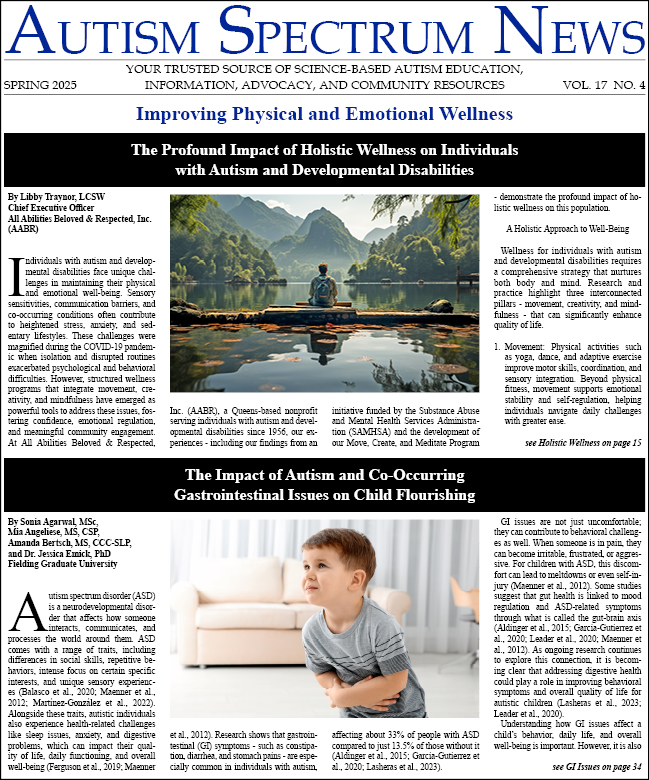The Autism Research Group, along with the Center for Autism and Related Disorders, published a study in the current issue of the journal “Research in Autism Spectrum Disorders” on teaching children with autism to detect and respond to lies told by others attempting to bully them.
A research study by Autism Research Group (ARG) and Center for Autism and Related Disorders (CARD), “Teaching children with autism to detect and respond to deceptive statements,” finds that children with autism can learn to detect when others are lying to them. The study taught individuals with autism to identify when others lied to them, specifically to exclude them from activities or to take away their possessions. The study appeared in the current issue of the journal “Research in Autism Spectrum Disorders.”
Previous research indicated that children with autism spectrum disorders (ASD) have deficits in understanding deception, both in the ability to lie to others and in the ability to detect when someone is lying to them. Children with ASD are frequently the victims of bullying, and difficulties understanding deception make the population more vulnerable to victimization.
“We designed this study in response to concerns from parents who said their children with autism was being bullied because they didn’t know how to tell when bullies were lying to them,” said Autism Research Group Assistant Director Angela Persicke, MA, BCBA. “It was exciting to see these children learn the necessary skills rapidly – especially because, in most cases, others have declared that children with autism are not capable of learning cognitive skills, such as comprehending deception.” The findings reveal that, through procedures based in applied behavior analysis (ABA), children with autism are able to understand the difference between truth and lies, as well as assert themselves when someone lies to them.
“Study findings indicate that the ability to detect and respond effectively to deception may be teachable in some children with autism spectrum disorders,” said ARG Research Coordinator Jennifer Ranick, MA. “All of the participants in this study were able to acquire the skill and demonstrated true understanding of the concept by being able to apply it to new lies told by new peers who were not present during training.”
Three children, ages 6, 7, and 9, with current diagnoses of autism participated in the study. Prior to the intervention, all three children were not able to detect when others were lying and believed the lies to be true. For example, if told that the child could not play a game because he did not have blonde hair, the child would say, “Oh, ok,” and continue to play alone. After the intervention, all three children not only identified when others were lying to exclude them from activities or take their possessions, but each child was also able to respond appropriately to lies stated by peers who had not been present during any training session.
“The study provides further evidence that behavioral teaching procedures can be used to teach complex social skills to children with autism,” said executive director of Autism Research Group and director of research and development at CARD, Jonathan Tarbox, PhD, BCBA-D. “The findings are encouraging and highlight the need for further research and treatment on procedures for teaching skills that involve complex language and cognition.”
About Center for Autism and Related Disorders (CARD)
Since 1990, CARD has been treating individuals of all ages diagnosed with ASD. Through its 23 treatment centers and worldwide network of providers, CARD has developed a successful model of treatment based on the principles of applied behavior analysis. The treatment is approved by the American Academy of Pediatrics and the US Surgeon General as the only scientifically proven treatment for autism. Founded by leading autism researcher and clinical psychologist Doreen Granpeesheh, PhD, BCBA-D, CARD has successfully treated tens of thousands of individuals and is committed to success for each one. For more information, visit www.centerforautism.com or call (855) 345-2273.
About Autism Research Group (ARG):
ARG is a nonprofit organization dedicated to using science to help individuals with autism spectrum disorders. The mission of ARG is to use science to improve the quality of life for people with autism spectrum disorders and the families who love them. The goal is to conduct research that matters to families and to share the results with the world, thereby helping more families to access effective treatment. A brighter tomorrow is possible for individuals with autism spectrum disorders, and ARG is using science to make it happen. For more information, visit www.autismresearchgroup.org or call (818) 620-9161.
This material is reproduced with permission and was originally published on March 8, 2013 by the Center for Autism and Related Disorders. You can view the original material online at http://www.centerforautism.com/card_press.aspx.





